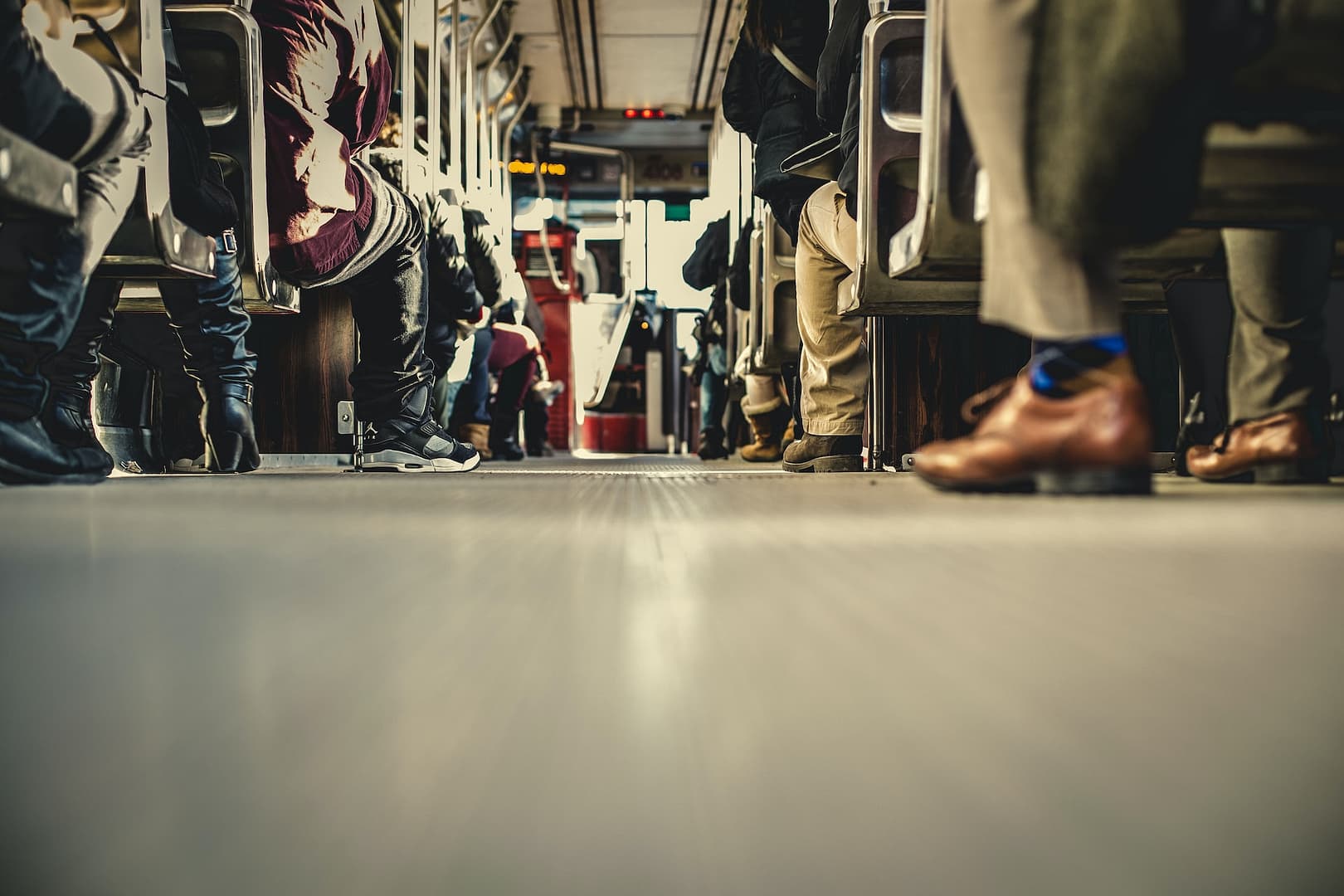Transport Accessibility and Brain Injuries: A Complex Journey
Transport accessibility following a brain injury is a crucial aspect of a survivor’s recovery journey. When an individual sustains a traumatic brain injury (TBI), it can have profound and often life-altering effects on their mobility and ability to travel. In this article, we will delve into how traumatic brain injuries affect mobility, whether it’s possible to travel with a brain injury, and explore the various challenges and solutions within the context of the UK. We will also highlight the steps you should take when making a serious injury claim.
How Does Traumatic Brain Injury Affect Mobility?
A traumatic brain injury, often resulting from accidents, falls, or sports-related incidents, can lead to a wide range of physical, cognitive, and emotional impairments. These effects can significantly impact a person’s ability to move around and access transportation options. Let’s break down some of the key ways in which a brain injury can affect mobility:
Physical Impairments
One of the most immediate and visible consequences of a traumatic brain injury is physical impairment. Depending on the severity and location of the injury, individuals may experience paralysis, muscle weakness, or coordination difficulties. These physical challenges can make it challenging to navigate transportation options independently.
Cognitive Challenges
Brain injuries often disrupt cognitive functions, including memory, attention, and problem-solving abilities. These cognitive challenges can make it difficult for survivors to plan routes, follow directions, or remember important travel details, such as ticket information or schedules.
Sensory Sensitivities
Many brain injury survivors develop heightened sensitivities to sensory stimuli, such as noise, lights, or crowds. These sensitivities can make using public transportation or crowded areas uncomfortable or even unbearable.
Emotional Impact
Emotional changes following a brain injury can also impact mobility. Survivors may experience anxiety, depression, or mood swings that affect their motivation to travel and interact with others.
Can You Travel with a Brain Injury?
The question of whether it’s possible to travel with a brain injury is a common concern for survivors and their loved ones. The answer is yes, but it often requires careful planning and adjustments to accommodate the individual’s unique needs and challenges.
Planning and Preparation
Travelling with a brain injury begins with thorough planning. It’s essential to consider the following factors:
Mode of Transport: Choose the mode of transportation that best suits the survivor’s needs and abilities. This might include cars, buses, trains, or accessible taxis.
Travel Companion: Having a trusted travel companion can provide invaluable support, especially if the survivor experiences cognitive or physical challenges.
Accessibility: Research the accessibility features of transportation options and destinations. Look for accommodations like wheelchair ramps, priority seating, and accessible restrooms.
Timings: Plan trips during times when the survivor is typically more alert and less fatigued.
Communication and Documentation
Clear communication is vital when travelling with a brain injury. Ensure that all necessary documents, such as identification, tickets, and medical records, are organised and easily accessible. It’s also a good idea to inform transportation staff about the individual’s condition to receive appropriate assistance if needed.
Adaptations and Assistive Tools
Various adaptations and assistive tools can enhance travel accessibility for brain injury survivors:
Mobility Aids: Wheelchairs, walking aids, and mobility scooters can provide support for those with physical impairments.
GPS and Navigation Apps: Smartphone apps with GPS and navigation features can help survivors plan routes and find their way, compensating for cognitive challenges.
Noise-Cancelling Headphones: For individuals sensitive to noise, noise-cancelling headphones can provide relief during noisy journeys.
Travel Pillows and Comfort Items: Emotional and sensory sensitivities can be mitigated with comfort items like travel pillows, sunglasses, or noise-cancelling earplugs.
Transport Accessibility in the UK: Challenges and Solutions
In the United Kingdom, efforts have been made to improve transport accessibility for individuals with disabilities, including those with brain injuries. However, challenges persist, and there is a continual need for advocacy and improvement.
Public Transportation
Public transportation in the UK is generally equipped with features to accommodate passengers with disabilities. Buses and trains are designed to be wheelchair accessible, and there are designated priority seating areas. However, issues such as overcrowding and inconsistent service quality can still pose challenges for brain injury survivors.
Solution: Improved training for transportation staff in recognizing and assisting passengers with invisible disabilities, like brain injuries, can lead to more inclusive and supportive travel experiences.
Accessible Taxis
Accessible taxis, commonly known as “black cabs,” are an essential part of transport accessibility in the UK. These taxis are designed to accommodate passengers with disabilities, including those using wheelchairs.
Solution: Increasing the availability of accessible taxis and ensuring they are well-maintained can enhance transportation options for brain injury survivors.
Blue Badge Scheme
The Blue Badge scheme in the UK allows people with disabilities, including those with brain injuries, to park closer to their destination. This scheme helps address the challenge of finding suitable parking spaces.
Solution: Expanding the Blue Badge scheme and raising awareness about its benefits can improve accessibility for survivors who rely on private transportation.
Supportive Organisations
Numerous organisations in the UK focus on advocating for individuals with brain injuries and improving transport accessibility. Brain Injury UK, Headway, and UKABIF (UK Acquired Brain Injury Forum) are just a few examples.
Solution: Supporting and collaborating with these organisations can lead to more comprehensive and tailored solutions for transport accessibility following brain injuries.
Making a Serious Injury Claim with National Claims
At National Claims, we understand the profound impact that brain injuries can have on individuals and their families. If you or a loved one has experienced a traumatic brain injury due to an accident that was not your fault, you may be entitled to compensation. Our dedicated team of claims specialists have experience in handling serious injury claims, including those related to brain injuries. We will show you what is involved in our claims process.
Why Choose National Claims?
Experience: Our team has extensive experience in handling serious injury claims, and we have successfully secured compensation for numerous brain injury survivors.
Compassion: We understand the physical, emotional, and financial challenges that come with brain injuries. We approach each case with empathy and care.
Expertise: Our legal experts are well-versed in the intricacies of brain injury claims, ensuring that you receive the best possible representation.
No Win, No Fee: At National Claims, we operate on a “No Win, No Fee” basis, meaning you only pay if we win your case.
How We Can Help
Assessment: We begin by assessing the details of your case, including the circumstances of the accident and the impact of the brain injury on your life.
Investigation: Our team conducts a thorough investigation to gather evidence and build a strong case on your behalf.

Conclusion: Navigating a New Normal
Transport accessibility following a brain injury is a journey filled with challenges, but it’s a journey that can be navigated successfully with the right support and resources. Brain injury survivors, their families, and society as a whole play crucial roles in ensuring that individuals affected by TBIs can travel with dignity and independence. By understanding the impact of brain injuries on mobility, planning carefully, and advocating for continued improvements in accessibility, we can create a more inclusive and supportive transportation system in the UK and beyond.
At National Claims, we are here to support you not only in your journey towards compensation but also in your journey towards recovery and rebuilding your life after a brain injury. If you believe you have a valid serious injury claim, please don’t hesitate to contact us. Together, we can help you navigate this new normal and secure the resources you need to move forward.
Contact us today and speak to our claims specialists to get started on your claim.
Click below to see why we are one of the most trusted claims management companies in the UK.

We’re proud of our excellent customer reviews
We thrive on delivering exceptional service and ensuring our clients’ satisfaction. Don’t just take our word for it. Check out some of our independent reviews to see what our clients have to say.
Excellent

This firm is excellent, they sorted out my car pay out and injury claim very fast, they always communicate with you all the time.

My accident case was dealt with confidence and with great result of the outcome, especially James kept me informed all the time.

I was very impressed at the way my inquiry was treated. I was listened to attentively and everything I needed to know was explained to me.






